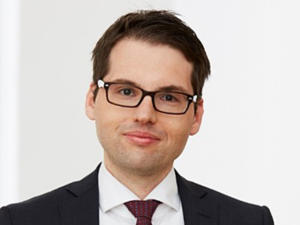Munich Higher Regional Court confirms new FRAND guidelines in VoiceAge vs HMD
HMD continues to infringe a patent belonging to VoiceAge's speech-coding standard EVS and cannot distribute corresponding products in Germany. The Higher Regional Court Munich has classified HMD as an unwilling licensee in its ruling. The judges simultaneously confirmed an injunction against Oppo.
20 March 2025 by Mathieu Klos
The Higher Regional Court Munich under presiding judge Lars Meinhardt has rejected HMD’s appeal against a ruling by the Regional Court Munich. The court found that HMD infringes the EVS speech-coding patent EP 2 102 619 owned by VoiceAge and is not a willing licensee (case ID: 6 U 3824/22 Kart).
Originally, the court had planned to publish its highly anticipated ruling on 6 February. However, due to the scope of the decision, the court needed six additional weeks.
Given the fundamental importance of today’s decision, the Higher Regional Court Munich has granted HMD leave to appeal to the German Federal Court of Justice. The dispute between VoiceAge and HMD has gained considerable significance for SEP and FRAND law in Germany.
Case history
In 2019, VoiceAge sued HMD over five patents in Mannheim and Munich. EP 1 509 903, EP 2 162 880, EP 2 707 687, EP 3 132 443 and EP 2 102 619 cover the speech-coding standard EVS.

Lars Meinhardt
The Regional Courts Mannheim and Munich found all patents to be infringed. HMD subsequently removed the EVS functionality from its devices sold in Germany. The mobile phone manufacturer appealed against all judgments to the Higher Regional Courts in Karlsruhe and Munich.
In the dispute over EP 619, the Regional Court Munich ordered HMD to cease and desist due to patent infringement in May 2022 (case ID: 7 O 14091/19). The court found HMD to be an unwilling licensee. HMD appealed to the Higher Regional Court Munich.
The Federal Patent Court upheld EP 619 in a restricted form. Both VoiceAge and HMD appealed against this decision. However, both companies have since withdrawn their appeals, meaning the patent is now valid in its restricted form.
EU Commission intervenes
In April 2024, the EU Commission intervened by submitting a statement in an amicus curiae brief. The Commission expressed dissatisfaction with the current jurisprudence of the Regional Court Munich.
The Commission’s interference in European SEP and FRAND law sparked considerable discussion among experts. The 6th Civil Senate of the Higher Regional Court Munich responded with a legal notice introducing a new approach regarding the willingness of licensees.
According to previous case law, which focuses primarily on the conduct of potential licensees, a patent user is almost always considered unwilling, especially before the Munich Regional Court.
In the legal notice, the Higher Regional Court Munich stated it would look more closely at the patent holder’s licence offer. The requirement for a “continuing willingness to take a licence” is met only if an implementer provides reasonable security, for example through a bank guarantee.
Insufficient security
The Higher Regional Court has now informed JUVE Patent that, applying its new FRAND guidelines published on 30 October 2024, the Senate concluded that “the defendant did not sufficiently manifest its willingness to take a licence on FRAND terms because it was not willing to provide sufficient security”.
Therefore, according to a court spokesperson, it is unnecessary to examine whether the plaintiff’s final licence offer was actually FRAND-compliant.
The court has not yet published its reasoning. However, the Munich judges allowed an appeal to the Federal Court of Justice, albeit limited to the FRAND defence, because “it has not yet been decided by the highest court whether the closer FRAND examination is to be made dependent on the provision of security, or whether the antitrust defence of compulsory licensing does not apply in the event of insufficient security, without the defendant’s willingness to take a licence having to be examined in other respects”.
Further ruling against Oppo
In a second decision, the court reached a similar conclusion. Alongside the HMD decision, the court also ruled on VoiceAge’s lawsuit against Oppo.
Here, the court confirmed the Regional Court’s finding that Oppo infringes EP 880 (case ID: 6 U 2204/23 Kart e). The patent has already received final confirmation from the Federal Court of Justice. The Higher Regional Court also allowed an appeal in this case.
Advisors in a historic case
Düsseldorf-based IP boutique Wildanger Kehrwald Graf v. Schwerin and Munich-based patent attorney firm Bosch Jehle have collaborated for many years on various campaigns for VoiceAge. A large team of Wildanger partners handle the infringement actions, including Alexander Wiese, Alexander Reetz, Peter-Michael Weisse, Jasper Meyer zu Riemsloh, Eva Thörner, Eva Geschke, and Ole Dirks.
- Peter-Michael Weisse
- Eva Geschke
- Thomas Hell
- Lars Baum
Bosch Jehle patent attorneys Thomas Hell and Rudolf Reichold worked on the nullity suits and technical aspects of the infringement actions. They maintain close ties with VoiceAge. Both firms also represent the NPE in the case against Oppo.
HRM and Vossius for HMD and Oppo
HMD relies on teams from Hoyng ROKH Monegier and Samson & Partner. The firms have an established working relationship. Düsseldorf-based litigator Lars Baum of Hoyng ROKH leads the infringement proceedings. The young partner took over from Klaus Haft, who initially led the case. The team includes associates Franca Poll-Wolbeck and Joscha Torweihe.
Patent attorney Georg Jacoby of Samson & Partner led the nullity suit, assisted by Thomas Behrens. Emma Sopyllo, head of IP and litigation at HMD, attended the hearing.
Hogan Lovells for the appeals hearing
HMD called in a second law firm for the appeals hearing. Andreas von Falck and Oliver Baecker from Hogan Lovells advised on the FRAND aspects of the proceedings.
In addition to EU Commission representatives, an antitrust team from Cleary Gottlieb Steen & Hamilton participated regarding the amicus curiae brief.
In the parallel case, a team from Vossius & Partner led by Andreas Kramer and Hannes Obex represents Oppo.



